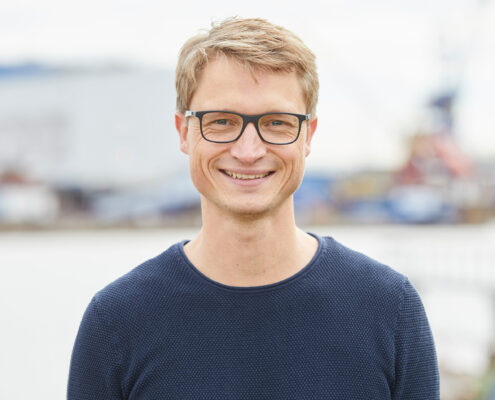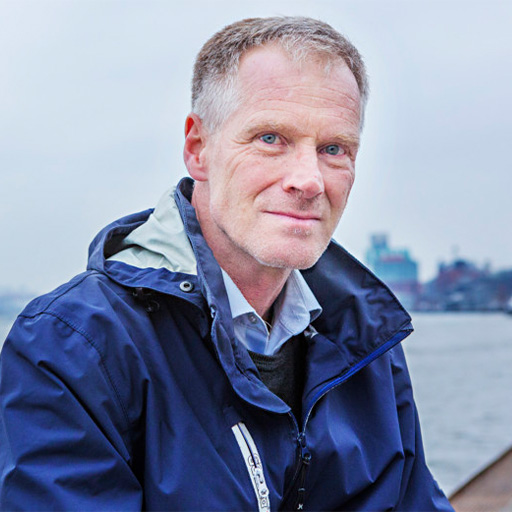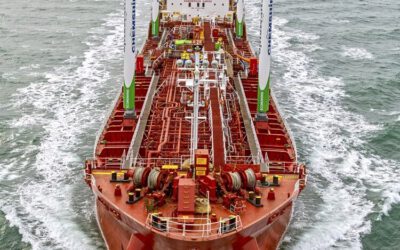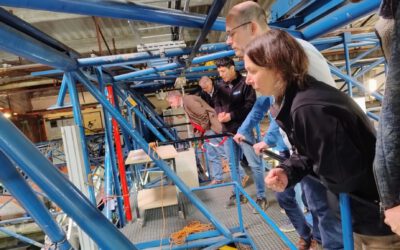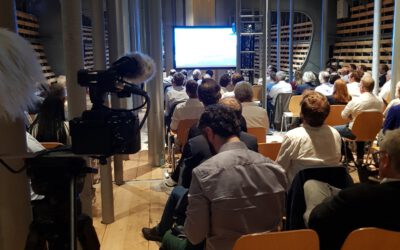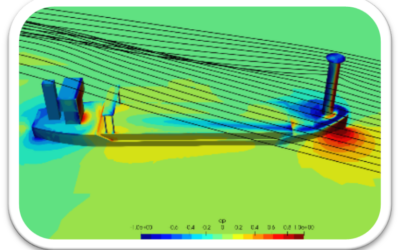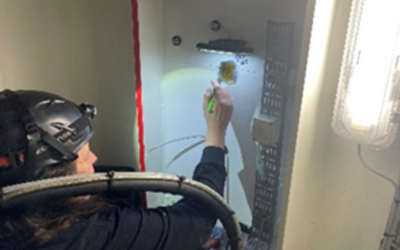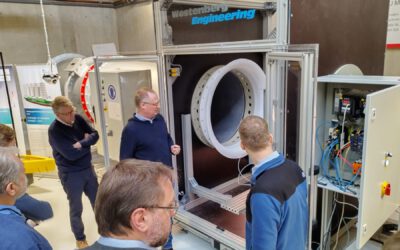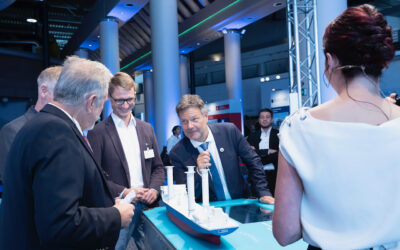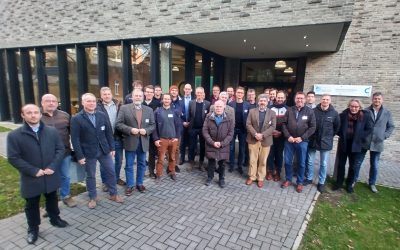Content
Measures
How can ships sail efficiently and in an environmentally friendly way? One way is to use wind power to assist the main propulsion – for example with a Flettner rotor. This type of propulsion uses the wind to generate additional thrust for the ship’s propulsion. The FlettnerFLEET project is creating the necessary conditions and foundations for the further development of Flettner rotor technology for the development of ships with this innovative propulsion system.
Create design bases of various cargo ships with Flettnerrotors
Development of design principles
Hydrodynamically optimised underwater hulls
Aerodynamically adapted surface vessels
Coordinated propulsion concept
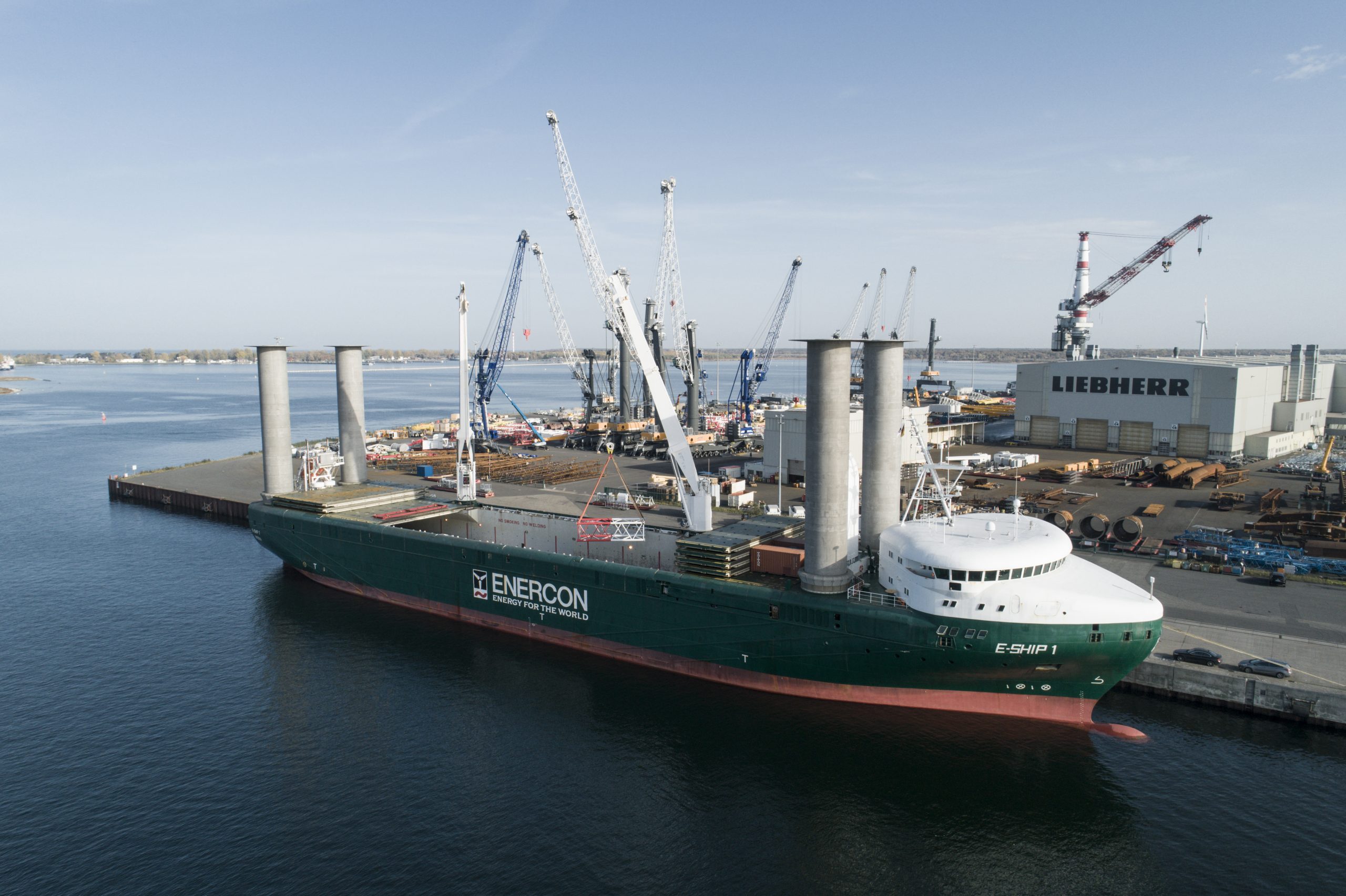
The aim of the project is to develop a comprehensive methodology for the design of ships with Flettner rotors, in order to enable a wide application of the technology in shipping. To this end, different types of ships will be investigated and optimised for operation with Flettner rotors in cooperation with the shipping companies involved in the project. This will make it easier to transfer the results to actual ship designs.
Dr. -Ing. Jochen Marzi
HSVA – Hamburger Schiffsversuchsanstalt
Further development of the Flettner rotor technology
Optimisation of rotor geometry and mechanics
Investigation of alternative materials
Preparation for industrial rotor production
Analysis and comparison with existing regulations
Ralf Oltmanns
ECO FLETTNER GmbH
“The extremely positive results of our prototype installation are now being used to further develop the technology. With this installation, we already have a good database for the next optimisation steps, which we will now expand even further.“
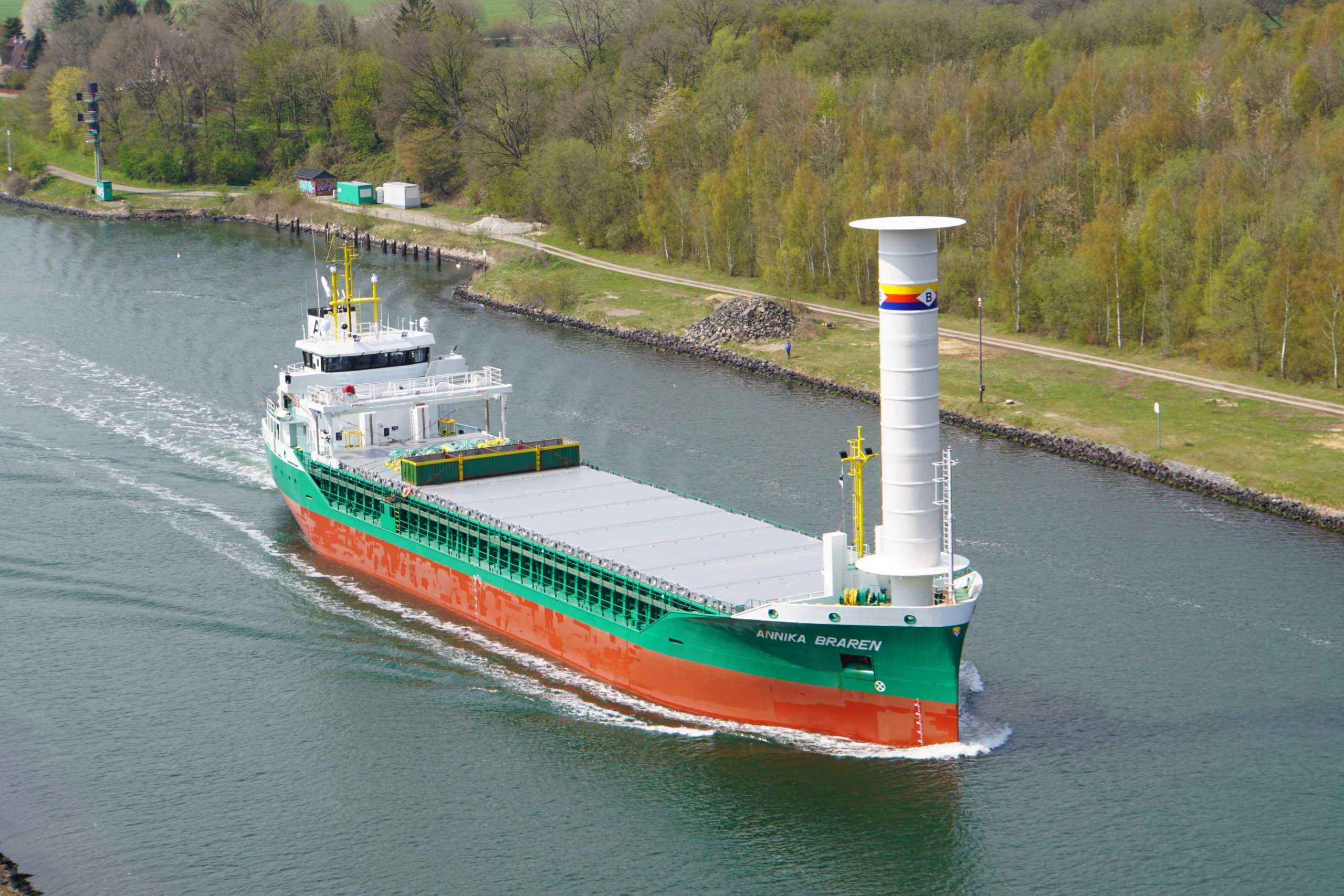
The data collected will be used to optimise the operation and design of the rotors. This will involve analysing existing designs and developing improvements. A cost-effective and flexible manufacturing process is also being sought. The aim is to build up and maintain manufacturing expertise in Germany.
Optimisation of existing assistance systems

Another element of the project is to optimise the route planning for rotor vessels so that they can make the best use of the wind. However, the aim is not to cover unnecessary extra distances in order to meet schedules. It is also important that the control of the rotors is as simple as possible, but that the systems have a high degree of autonomy and intelligence. This is the only way they can be used as much as possible and thus save fuel. The units need to be well coordinated with each other to achieve further fuel savings.
Prof. Capt. Michael Vahs
Hochschule Emden/Leer
Extensive data collection for a broad data base
MS Annika Braren and MS E-Ship1 as data providers
Data base for further development of rotor technology and ship design
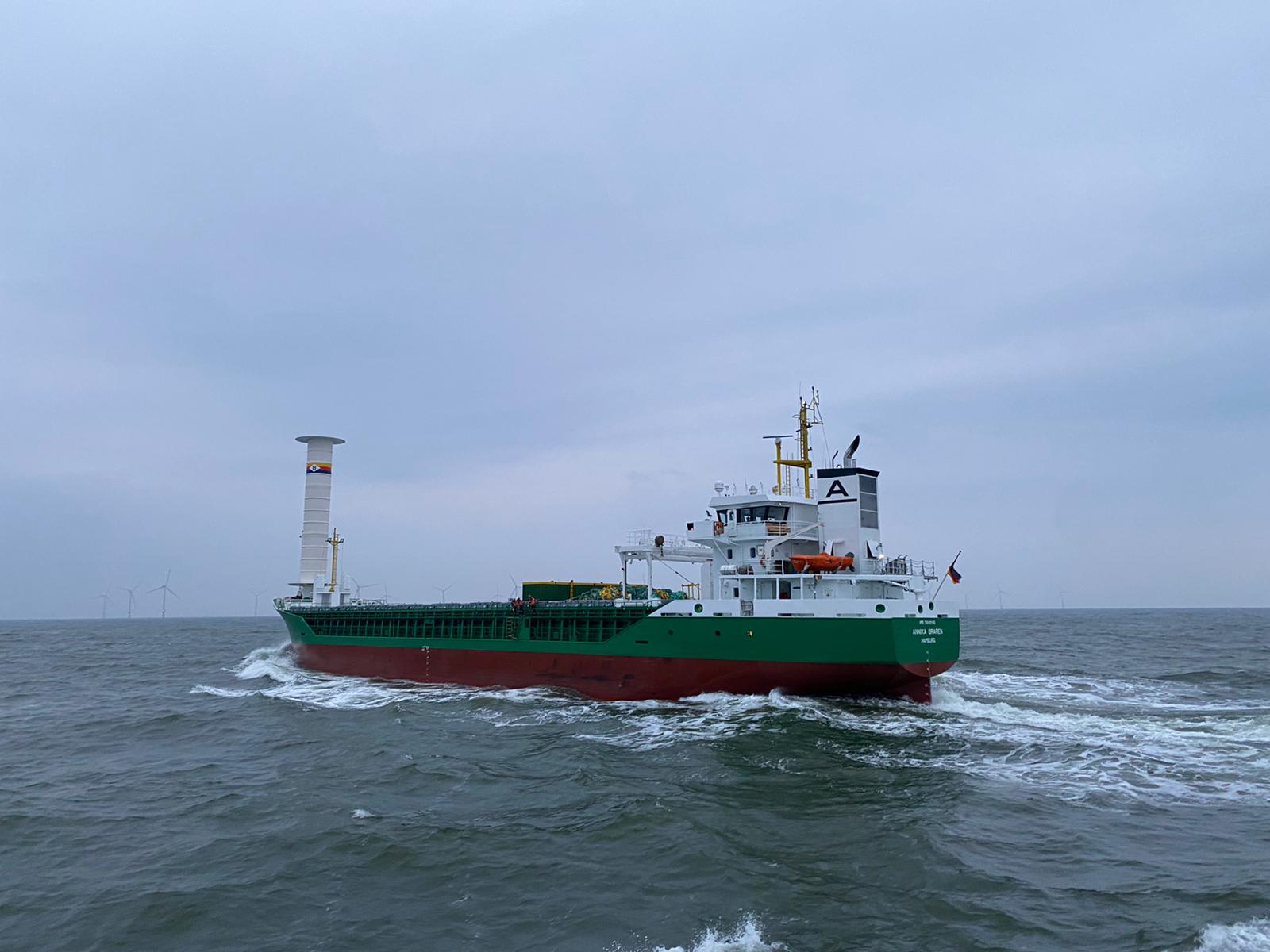
The pioneer of the project is the former “MS Fehn Pollux”, equipped with a Flettner rotor from Leer.
Other rotor ships, such as the MS E-Ship1 and the MS Annika Braren, will also be included in the project’s database during the course of the measurement campaigns. For this purpose, the existing measurement systems on board will be checked and, if necessary, adapted in order to be able to record the relevant data from the rotors. Analyses will help to optimise the Flettner rotor technology and to develop the planned ship designs for the interaction between the Flettner rotors and the system ship.
Paul Feja
Fraunhofer Institute for Wind Energy Systems
“A good database is an essential element for further developments. This is where we bring in our expertise and experience from the wind power industry to advance Flettner rotor technology,”
Events & News
Windship Insights – Focus on Suction Wings
26.03.2025 | Microsoft Teams
Towing tests of the first ship design
at the Hamburgische Schiffbau-Versuchsanstalt GmbH (HSVA)
Wind propulsion is becoming increasingly popular in shipping
‘Windship Day 2024’ conference on board the historic cargo ship PEKING
Project update: CFD
CFD, FlettnerFLEET and MS “Annika Braren”
Windship Insights – Flettnerrotor
23.10.2024 | Microsoft Teams
Project update: measurement systems and data acquisition
Installation and commissioning at “MS Annika Braren”
Status-Update FlettnerFLEET
Project meeting no. 3 in Leer
FlettnerFLEET in the spotlight at the National Maritime Conference
FlettnerFLEET was presented to Federal Minister Robert Habeck
FLETTNERFLEET: A fresh breeze for the fleet!
Federal government funds a project to further develop Flettner rotor technology
Downloads
Flyer
Artikel "Flettnerrotor senkt Brennstoffkosten“"
Contact
